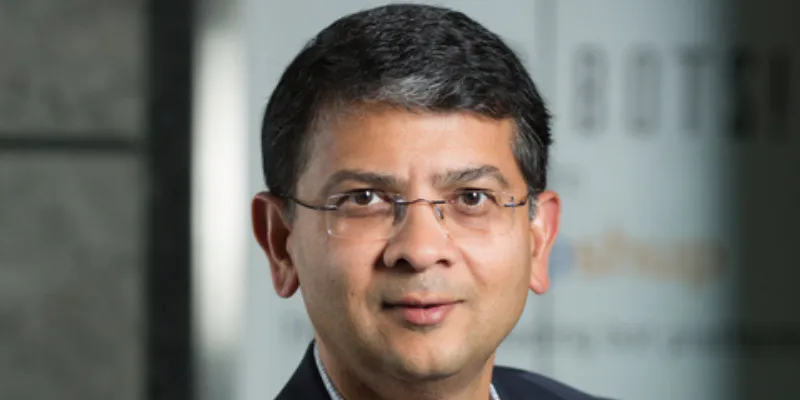How patience and innovation helped turn Gupshup into a unicorn
In this episode of the Prime Venture podcast, Gupshup CEO and Co-founder Beerud Sheth shares the unicorn’s 15-year long journey. He also shares insights on manoeuvering the startup through new technologies, building a solid team, and having a measure of success.
Gupshup CEO Beerud Sheth believes that constant innovation and patience in a slowly growing industry propelled Gupshup to become what it is today. The conversational messaging platform entered the coveted unicorn club in April 2021.
It took Beerud’s team 15-long years to reach this milestone, but the serial entrepreneur is not new to building successful companies over an extended span.
Before Gupshup, Beerud had co-founded Elance in 1998 — which became Upwork in 2015, went public in 2018, and now is a $6 billion company. And, patience and innovation lay at the heart of this success story too.

Gupshup co-founder & CEO Beerud Sheth
What is Gupshup
In an episode of the Prime Venture podcast, Gupshup CEO and Co-founder Beerud Sheth says, “Gupshup is simply a conversational messaging platform. When you book a ticket or buy coffee, you receive a confirmation SMS or a credit amount due to notification on your phone. We are basically the platform that facilitates that.”
The Silicon Valley-headquartered startup is now building an infrastructure to facilitate two-way messaging, where customers can reschedule their flight just by replying to the confirmation SMS or pay for the coffee by clicking twice from the credit card notification to enhance business-customer interaction.
However, the CEO was quick to point out that Gupshup did not have the dream run when it started, which it is enjoying now.
Initially, the startup was strictly an SMS application, and the business model revolved around subsidising the cost of sending messages. Even when the idea was successful, regulations prevented it from monetising the application, and it hit a roadblock.
“We could neither subsidise nor monetise. The platform was great; the scale was engaging, but we could not afford the model,” he shares.
Turning things around
However, the CEO did not consider the roadblock as a dead end.
He says, “Instead, I kept asking myself – what is working currently and what all can we retain? What is not working and what do we need to change?”
Gupshup changed its business model from consumer-oriented to enterprise-oriented, and the rest is, as they say, is history.
Speaking about what motivated Beerud to stick to this highly regularised industry with little scope of growth, he says, “You need to see the industry size. Worldwide, the business communication sector was already worth $50 billion. This meant people were ready to spend money here, and the industry is not going away anytime soon. Facebook had started testing bot APIs in its Messenger app, and WhatsApp was already talking about consumer messaging.”
In Beerud’s words, these are the indications that tell you to be patient with your industry. Treat the roadblock as a down phase, and innovate your way out.
Thinking (and financing) long term
The biggest challenge of building a company for decades is naturally cash flow. And, Beerud did not deny that Gupshup had its difficult days as well.
“Initially, no one knows that you are going to be successful. Investors did not want to pay us money. But I made it a point to send a founder’s note with our funding pitches, which listed 10 innovations we worked on in the past couple of years. Yes, not all of them work, but we derive educational values from those innovations. Every failed attempt adds vital learnings to the next innovation, and one of them is bound to work and turn big,” Beerud says.
A word of caution
Patience and innovation worked for Gupshup because the team worked in the right industry from the right angles. The CEO points out that early-stage entrepreneurs need to identify instances when patience is just not sustainable.
“If cash flow dries up, you need to take your entrepreneurial energy elsewhere. And you need to hedge your innovative capacity by experimenting with different ideas at the same time,” he says, adding, “This way, the transition is smooth.”
To know more, listen to the podcast here.
Notes:
02:00 – Beerud Seth’s journey from IIT Bombay to MIT to Gupshup
04:20 – How Gupshup was founded?
15:00 – Thinking about growth and profitability the right way
25:00 – How to manoeuvre a startup through new technologies into a new future?
32:00 – Building a team of dedicated missionaries, not mercenaries
43:00 – Evaluating your present success and keeping away distractions
Edited by Suman Singh








